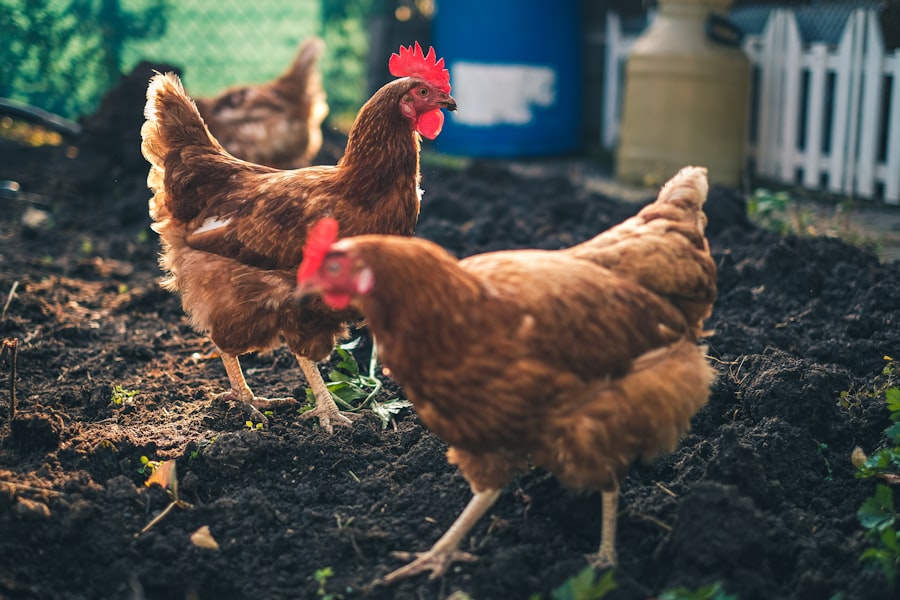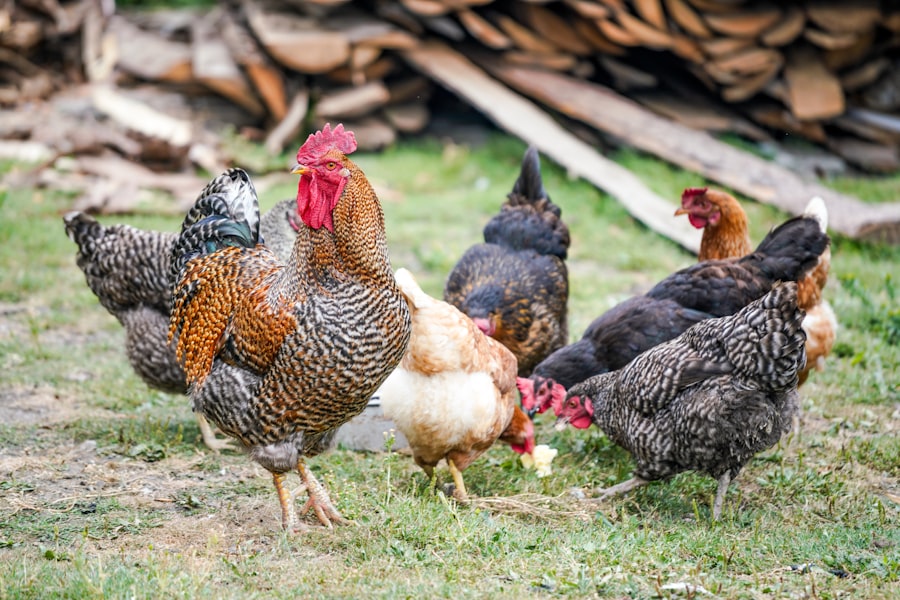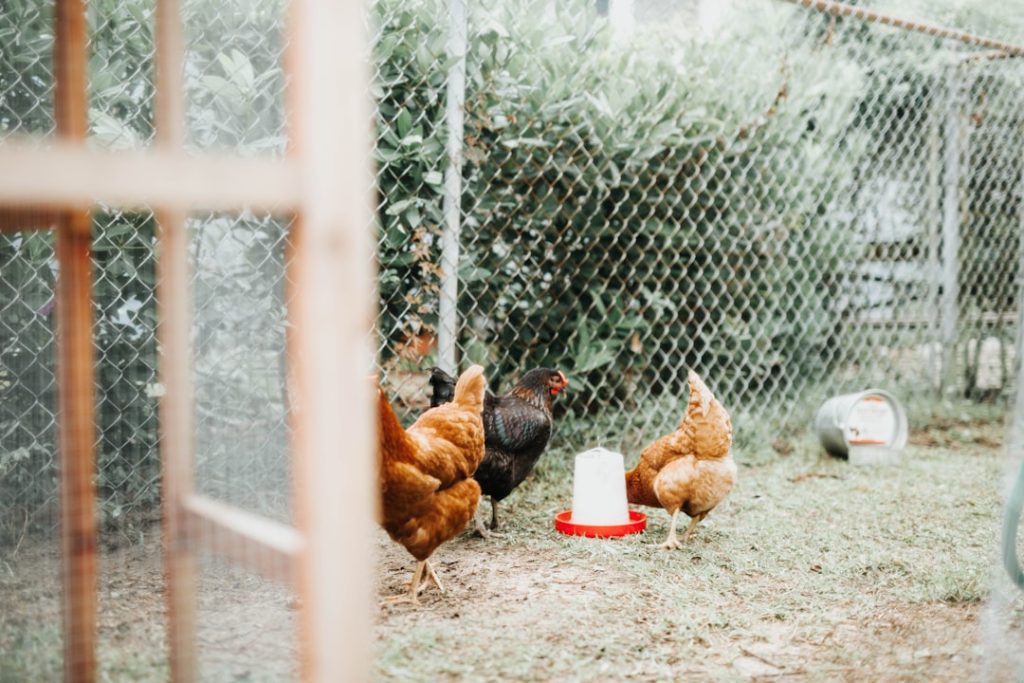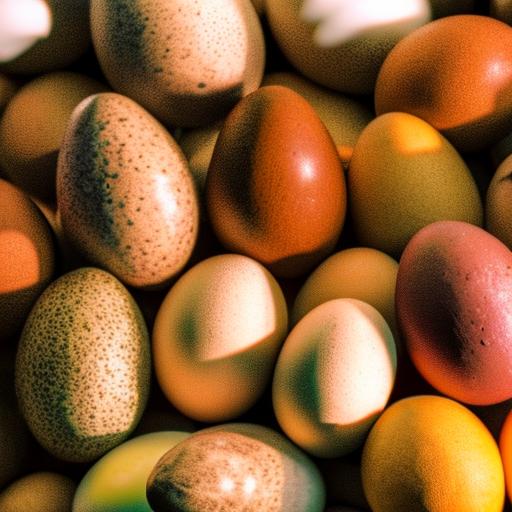Chickens, particularly breeder chickens, have specific nutritional requirements that must be met to ensure optimal growth and reproduction. A balanced diet for breeder chickens should provide essential nutrients to support their reproductive functions and the development of their offspring. Protein is a critical component, as it is necessary for egg production and healthy chick growth.
Breeder chickens also require various vitamins and minerals, including calcium, phosphorus, and vitamin D, to maintain bone health and support eggshell formation. Energy-rich diets are crucial for breeder chickens to support their reproductive activities and overall health. Carbohydrates and fats serve as important energy sources and should be included in appropriate amounts.
When formulating diets, it is essential to consider the age and breed of the breeder chickens, as nutritional requirements may vary among different breeds and age groups. Breeder chickens have distinct nutritional needs compared to other poultry types. Their diet must be carefully balanced to support their own health and growth, as well as the health and development of their offspring.
Breeder feed must provide the necessary nutrients for egg production and chick development while supporting the overall well-being of the breeding flock. This requires a carefully formulated diet with the right balance of protein, energy, vitamins, and minerals to support the reproductive activities of breeder chickens. Understanding and meeting the specific nutritional needs of breeder chickens is crucial for ensuring their health, productivity, and the success of breeding programs.
Table of Contents
- 1 Selecting the Right Breeder Feed for Optimal Growth and Reproduction
- 2 Key Ingredients to Look for in Breeder Feed
- 3 Feeding Schedule and Quantity for Breeder Chickens
- 4 Importance of Water and Supplements in Breeder Chicken Nutrition
- 5 Monitoring and Adjusting Breeder Feed for Maximum Productivity
- 6 Common Mistakes to Avoid When Feeding Breeder Chickens
- 7 FAQs
- 7.1 What is breeder feed for chickens?
- 7.2 What are the key nutrients in breeder feed?
- 7.3 Why is breeder feed important for chicken breeding operations?
- 7.4 How is breeder feed different from regular chicken feed?
- 7.5 When should breeder feed be introduced to chickens?
- 7.6 Can breeder feed be used for non-breeding chickens?
Key Takeaways
- Understanding the nutritional needs of chickens is crucial for optimal growth and reproduction.
- Selecting the right breeder feed is essential for providing the necessary nutrients for chickens’ health and productivity.
- Key ingredients to look for in breeder feed include protein, vitamins, and minerals to support egg production and overall health.
- Establishing a feeding schedule and quantity is important for maintaining breeder chickens’ health and productivity.
- Water and supplements play a crucial role in breeder chicken nutrition and should not be overlooked.
Selecting the Right Breeder Feed for Optimal Growth and Reproduction
Key Considerations for Selecting Breeder Feed
When selecting breeder feed, it is important to choose a high-quality feed that is specifically designed for breeding chickens. This feed should be formulated to provide the right balance of protein, energy, vitamins, and minerals to support the reproductive activities of the breeder chickens. In addition to considering the nutritional content of the feed, it is also important to choose a feed that is free from contaminants and toxins that could negatively impact the health and productivity of the breeding flock.
The Importance of Feed Quality and Safety
The quality of the ingredients used in the feed, as well as the manufacturing processes used to produce the feed, can have a significant impact on its overall quality and safety. Therefore, it is important to select breeder feed from a reputable supplier that adheres to strict quality control standards. By selecting the right breeder feed for breeding chickens, producers can ensure that their breeding flock receives the essential nutrients they need to support optimal growth and reproduction.
Ensuring Optimal Growth and Reproduction
By selecting high-quality breeder feed from a reputable supplier, producers can ensure that their breeding flock receives the essential nutrients they need to support optimal growth and reproduction. High-quality breeder feed should be formulated to provide the right balance of protein, energy, vitamins, and minerals to support the reproductive activities of the breeder chickens. It should also be free from contaminants and toxins that could negatively impact the health and productivity of the breeding flock.
Key Ingredients to Look for in Breeder Feed

Breeder feed should contain key ingredients that are essential for supporting optimal growth and reproduction in breeding chickens. Protein is a crucial component of breeder feed, as it is essential for supporting egg production and chick development. The protein content of breeder feed should be carefully balanced to meet the specific needs of breeding chickens at different stages of their reproductive cycle.
In addition to protein, breeder feed should also contain a variety of vitamins and minerals that are essential for supporting bone health, eggshell formation, and overall reproductive function. Calcium is a particularly important mineral to look for in breeder feed, as it is essential for supporting strong eggshells and preventing calcium deficiencies in breeding chickens. Phosphorus is another important mineral that should be included in breeder feed to support bone health and egg production.
Vitamin D is also crucial for breeding chickens, as it plays a key role in calcium absorption and utilization. In addition to these key ingredients, breeder feed should also contain a balance of carbohydrates and fats to provide energy for breeding chickens. By including these key ingredients in breeder feed, producers can ensure that their breeding flock receives the essential nutrients they need to support optimal growth and reproduction.
Breeder feed should contain key ingredients that are essential for supporting optimal growth and reproduction in breeding chickens. Protein is a crucial component of breeder feed, as it is essential for supporting egg production and chick development. The protein content of breeder feed should be carefully balanced to meet the specific needs of breeding chickens at different stages of their reproductive cycle.
In addition to protein, breeder feed should also contain a variety of vitamins and minerals that are essential for supporting bone health, eggshell formation, and overall reproductive function. Calcium is a particularly important mineral to look for in breeder feed, as it is essential for supporting strong eggshells and preventing calcium deficiencies in breeding chickens. Phosphorus is another important mineral that should be included in breeder feed to support bone health and egg production.
Vitamin D is also crucial for breeding chickens, as it plays a key role in calcium absorption and utilization. In addition to these key ingredients, breeder feed should also contain a balance of carbohydrates and fats to provide energy for breeding chickens. By including these key ingredients in breeder feed, producers can ensure that their breeding flock receives the essential nutrients they need to support optimal growth and reproduction.
Feeding Schedule and Quantity for Breeder Chickens
Establishing a feeding schedule and determining the appropriate quantity of feed for breeder chickens is essential for supporting their reproductive activities and overall health. Breeding chickens should be fed a balanced diet that provides them with the necessary nutrients to support egg production and chick development. The feeding schedule for breeder chickens will depend on factors such as their age, breed, and reproductive stage.
Young breeders may require more frequent feeding to support their growth and development, while mature breeders may require a different feeding schedule to support their reproductive activities. In addition to establishing a feeding schedule, it is important to determine the appropriate quantity of feed for breeder chickens. Overfeeding or underfeeding breeding chickens can have negative impacts on their health and productivity.
It is important to monitor the body condition of breeding chickens regularly and adjust their feed intake accordingly. By providing breeding chickens with the right amount of feed at the right times, producers can ensure that their breeding flock receives the necessary nutrients to support optimal growth and reproduction. Establishing a feeding schedule and determining the appropriate quantity of feed for breeder chickens is essential for supporting their reproductive activities and overall health.
Breeding chickens should be fed a balanced diet that provides them with the necessary nutrients to support egg production and chick development. The feeding schedule for breeder chickens will depend on factors such as their age, breed, and reproductive stage. Young breeders may require more frequent feeding to support their growth and development, while mature breeders may require a different feeding schedule to support their reproductive activities.
In addition to establishing a feeding schedule, it is important to determine the appropriate quantity of feed for breeder chickens. Overfeeding or underfeeding breeding chickens can have negative impacts on their health and productivity. It is important to monitor the body condition of breeding chickens regularly and adjust their feed intake accordingly.
By providing breeding chickens with the right amount of feed at the right times, producers can ensure that their breeding flock receives the necessary nutrients to support optimal growth and reproduction.
Importance of Water and Supplements in Breeder Chicken Nutrition
In addition to providing breeder chickens with a balanced diet, it is important to ensure that they have access to clean water at all times. Water is essential for supporting various physiological functions in breeding chickens, including digestion, nutrient absorption, temperature regulation, and waste elimination. Breeding chickens may have increased water requirements during periods of high egg production or environmental stress, so it is important to monitor their water intake regularly and provide them with an adequate supply of clean water.
Supplements can also play a role in supporting breeder chicken nutrition. Certain supplements may be beneficial for supporting egg production, chick development, or overall reproductive function in breeding chickens. However, it is important to consult with a poultry nutritionist or veterinarian before adding supplements to a breeder chicken’s diet, as excessive or unnecessary supplementation can have negative impacts on their health and productivity.
By providing breeding chickens with access to clean water and carefully considering any necessary supplements, producers can ensure that their breeding flock receives the necessary nutrients to support optimal growth and reproduction. In addition to providing breeder chickens with a balanced diet, it is important to ensure that they have access to clean water at all times. Water is essential for supporting various physiological functions in breeding chickens, including digestion, nutrient absorption, temperature regulation, and waste elimination.
Breeding chickens may have increased water requirements during periods of high egg production or environmental stress, so it is important to monitor their water intake regularly and provide them with an adequate supply of clean water. Supplements can also play a role in supporting breeder chicken nutrition. Certain supplements may be beneficial for supporting egg production, chick development, or overall reproductive function in breeding chickens.
However, it is important to consult with a poultry nutritionist or veterinarian before adding supplements to a breeder chicken’s diet, as excessive or unnecessary supplementation can have negative impacts on their health and productivity. By providing breeding chickens with access to clean water and carefully considering any necessary supplements, producers can ensure that their breeding flock receives the necessary nutrients to support optimal growth and reproduction.
Monitoring and Adjusting Breeder Feed for Maximum Productivity

Ensuring Nutrient Intake and Healthy Body Condition
Regular monitoring of breeder feed intake and body condition is crucial for achieving maximum productivity in breeding chickens. By tracking daily feed consumption, producers can ensure that their breeding chickens receive the necessary nutrients to support optimal growth and reproduction. Additionally, regular monitoring of body condition helps maintain a healthy weight and body condition score.
Adjusting the Diet to Meet Changing Needs
Producers may need to adjust the diet of their breeding chickens based on changes in environmental conditions or reproductive activity. For instance, breeding chickens may require more nutrients during periods of high egg production or environmental stress. By making adjustments to their diet, producers can ensure that their breeding flock receives the necessary nutrients to support optimal growth and reproduction.
Making Informed Decisions through Regular Monitoring
Regular monitoring of breeder feed intake and body condition enables producers to make informed decisions about adjusting their diet as needed. This helps ensure that breeding chickens receive the necessary nutrients to support optimal growth and reproduction, ultimately leading to maximum productivity.
Common Mistakes to Avoid When Feeding Breeder Chickens
There are several common mistakes that producers should avoid when feeding breeder chickens in order to ensure their health and productivity. One common mistake is providing inadequate nutrition or imbalanced diets that do not meet the specific needs of breeding chickens at different stages of their reproductive cycle. This can lead to poor egg production, low hatchability rates, or other reproductive issues in breeding chickens.
Another common mistake is overfeeding or underfeeding breeding chickens, which can lead to obesity or nutrient deficiencies that negatively impact their health and productivity. It is important to monitor breeder feed intake regularly and adjust their diet as needed based on changes in environmental conditions or reproductive activity. Finally, another common mistake is failing to provide breeding chickens with access to clean water at all times or neglecting necessary supplements that may be beneficial for supporting egg production or overall reproductive function in breeding chickens.
By avoiding these common mistakes when feeding breeder chickens, producers can ensure that their breeding flock receives the necessary nutrients to support optimal growth and reproduction. There are several common mistakes that producers should avoid when feeding breeder chickens in order to ensure their health and productivity. One common mistake is providing inadequate nutrition or imbalanced diets that do not meet the specific needs of breeding chickens at different stages of their reproductive cycle.
This can lead to poor egg production, low hatchability rates, or other reproductive issues in breeding chickens. Another common mistake is overfeeding or underfeeding breeding chickens, which can lead to obesity or nutrient deficiencies that negatively impact their health and productivity. It is important to monitor breeder feed intake regularly and adjust their diet as needed based on changes in environmental conditions or reproductive activity.
Finally, another common mistake is failing to provide breeding chickens with access to clean water at all times or neglecting necessary supplements that may be beneficial for supporting egg production or overall reproductive function in breeding chickens. By avoiding these common mistakes when feeding breeder chickens, producers can ensure that their breeding flock receives the necessary nutrients to support optimal growth and reproduction.
If you’re looking for information on chicken coops, you might also be interested in an article on whether turkeys need a coop. Check out this article to learn more about housing options for turkeys and how it relates to the care of your poultry.
FAQs
What is breeder feed for chickens?
Breeder feed for chickens is a specialized type of feed designed to meet the nutritional needs of breeding chickens. It is formulated to support the health and reproductive performance of breeding hens and roosters.
What are the key nutrients in breeder feed?
Breeder feed typically contains higher levels of protein, vitamins, and minerals compared to regular chicken feed. It is also formulated with specific nutrients such as calcium, phosphorus, and essential fatty acids to support egg production and fertility.
Why is breeder feed important for chicken breeding operations?
Breeder feed plays a crucial role in ensuring the overall health and reproductive success of breeding chickens. It provides the necessary nutrients to support egg production, fertility, and the development of healthy chicks.
How is breeder feed different from regular chicken feed?
Breeder feed is specifically formulated to meet the unique nutritional requirements of breeding chickens, whereas regular chicken feed is designed for the maintenance and growth of non-breeding chickens. Breeder feed contains higher levels of certain nutrients to support reproductive performance.
When should breeder feed be introduced to chickens?
Breeder feed should be introduced to chickens prior to the start of the breeding season. It is important to transition breeding chickens to breeder feed several weeks before the onset of breeding activities to ensure they receive the necessary nutrients for optimal reproductive performance.
Can breeder feed be used for non-breeding chickens?
Breeder feed is not recommended for non-breeding chickens as it contains higher levels of certain nutrients that may not be suitable for their needs. Non-breeding chickens should be fed a regular chicken feed that is appropriate for their stage of growth and development.
Meet Walter, the feathered-friend fanatic of Florida! Nestled in the sunshine state, Walter struts through life with his feathered companions, clucking his way to happiness. With a coop that’s fancier than a five-star hotel, he’s the Don Juan of the chicken world. When he’s not teaching his hens to do the cha-cha, you’ll find him in a heated debate with his prized rooster, Sir Clucks-a-Lot. Walter’s poultry passion is no yolk; he’s the sunny-side-up guy you never knew you needed in your flock of friends!







